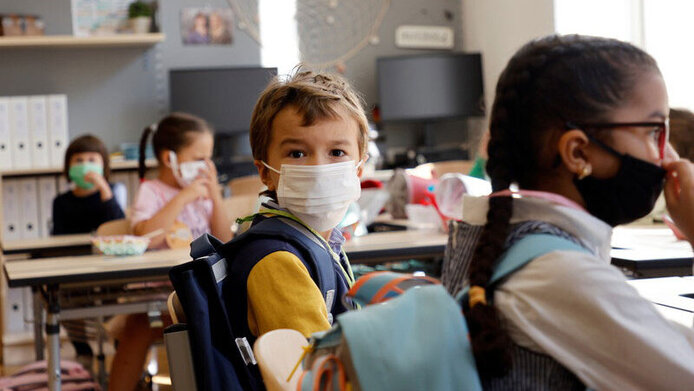Where is digital education heading?

Let’s start with the obvious: Over the last 18 months, we have lived through a pandemic – a situation that still persists. Digitalisation has helped us maintain normal activities in some spheres of life. It helped us with working from our home offices, communicating with friends and relatives, and it supported the continuation of schooling, at least of some aspects of schooling as we know it. But we should not jump to the conclusion that this marks our successful arrival in a digitalised world. On the contrary – disparity in education has grown, and many have been left behind. Deep fissures are running through society. Children in particular have been subjected to severe stress.
What we see is that digital education has diverging effects. Learners and teachers can experience it as an enriching tool that helps to balance out disadvantages and promotes individual, self-determined learning. But when the ground is poorly prepared and adequate didactic formats are missing, the outcomes of digital education can be just the opposite. What the last 18 months have shown us is that differences in access to education, which had already been present, tended to grow along intersectional lines, with gender and (social) background being key aspects.
Promoting digitalisation and diversity
With this in mind, promotion of diversity and the use of digital tools have to be closely interlinked. What digitalisation and diversity have in common is that ideally, they are regarded as positive resources to ensure broader and unhampered access to education. Rather than creating new dimensions of exclusion, the combination of digital tools and diversity promotion can function as a counterweight to normative and exclusive tendencies in education.
The pandemic has created a strong push effect towards digital education. Under its eight-point plan, the Austrian Ministry of Education is finally making long-needed funds available to provide school pupils with computer terminals, and the necessary infrastructure for digital teaching and learning is being developed. However, these measures will be successful only if there is strong pedagogic support for the programmes and resources that are being offered.
Love of learning over pushing for performance
One thing has become clearer than ever during the pandemic: To ensure the success and universal reach of digital education (and education in general), we have to provide not only sufficient resources for it, but we also need fundamental changes in the ways of thinking that are embedded in our school system. The latter include a neoliberal focus on performance and normative structures, such as the re-introduction of mandatory grading and standardised performance tests in primary schools, as well as centrally organised school-leaving examinations. These policies, along with divisive practices such as the segregation of pupils through remedial German classes, dramatically increase the pressure on pupils, teachers and parents. After the last 18 months, during which school children as a sector of society had to shoulder a disproportionate part of the burden that anti-Covid policies entailed, we need to focus less on performance indicators and more on motivating young learners and promote their love of learning.
There is much talk about the skills that pupils “must acquire” in order to “keep up with digitalisation.” But we should rather consider which conditions, resources and didactic formats we need to facilitate self-determined learning, individual growth, curiosity and the development of personal interests, and how digitalisation can be used to this end as a supporting resource for all pupils.
Taking pressure out of the system
What should we do right now, this autumn? We have to recognise children’s needs and treat them with respect. We have to understand that schools have other roles besides learning and providing custodial functions. Above all, they offer a social environment in which children are able to discover and pursue their individual interests autonomously. Austria’s Federal Constitutional Law on the Rights of Children states: “Whenever public and private institutions take measures that affect children, the best interests of the child shall be given priority consideration.”
As children have shouldered a heavy burden in the pandemic and will most likely continue to bear this burden through autumn, we have to take action to assist and support them. We have to reduce the focus on performance and take pressure out of the system to give school pupils space to breathe, to get organised on their own and find their bearings. This should also include the provision of counselling services, individual assistance and psychological support. And we have to give teachers the resources they need to support pupils – including the further development of teacher training and continuing education in the spheres of diversity and digitalisation, high-quality supervision and up-to-date workplace equipment, the latter being an urgent necessity in hybrid working environments that combine classroom and online teaching.
In our ever more complex world, the core objectives in school education should be personal autonomy, social skills, responsibility and a voice for everyone. In our efforts to reach these goals, digitalisation will be a useful tool – as long as we keep in mind what must be at the centre of it all: young people, their needs, interests and love of learning, which we have to do our utmost to preserve.
Personal details
Fares Kayali is Professor of Digital Education and Learning and founder of the Computational Empowerment Lab at the Centre for Teacher Education at the University of Vienna. His research and teaching interests are interdisciplinary, combining informatics, didactics and social sciences. He is the recipient of several FWF grants.





